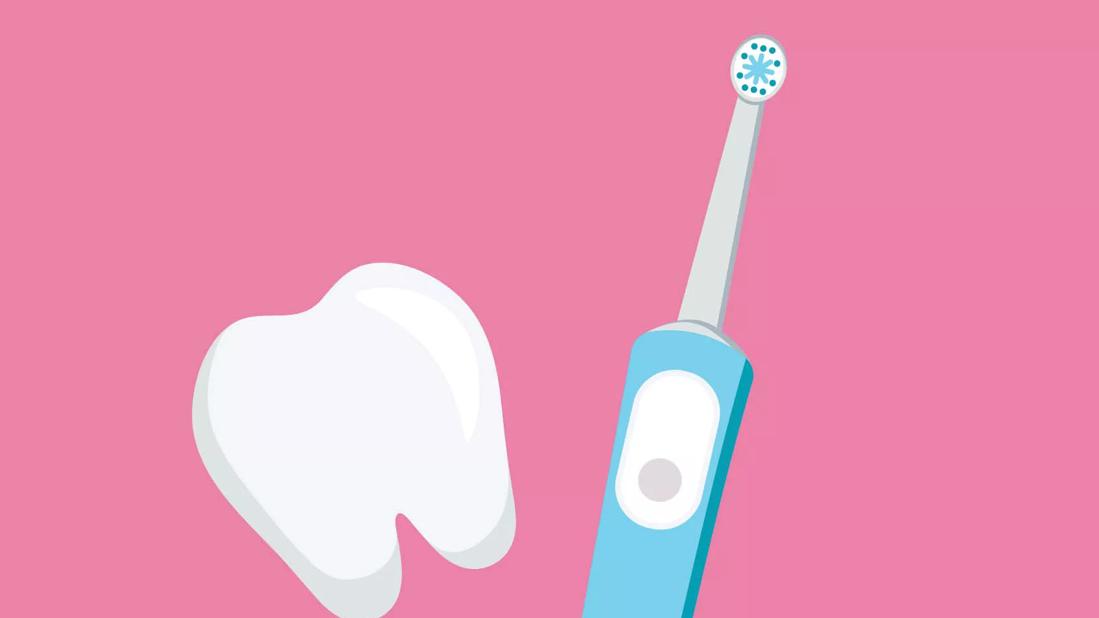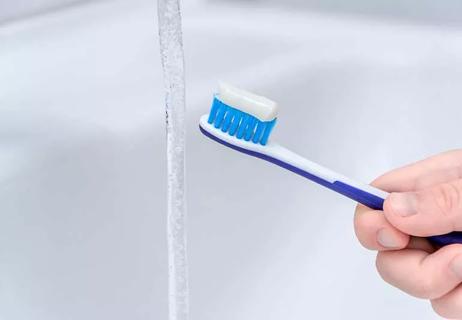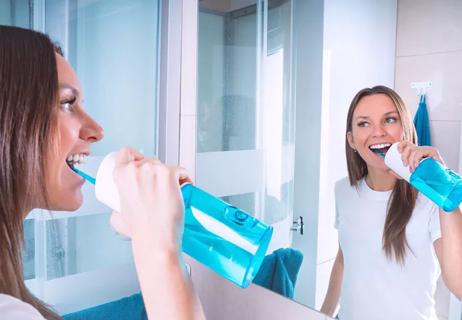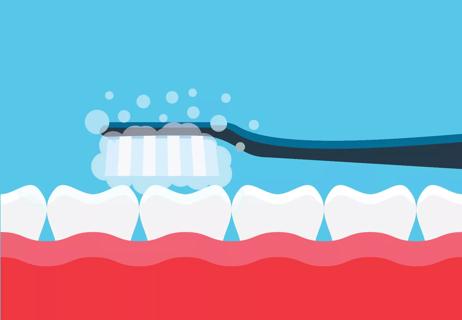Studies show they do a better job than manual brushes at removing plaque and debris

These days, there’s a “smart” version of just about everything, from kitchen appliances to lightbulbs to cars (and beyond). In a world where technologically advanced alternatives are everywhere, it can be tough to decide which ones are nice-to-haves and which ones really have a positive impact on your life.
Advertisement
Cleveland Clinic is a non-profit academic medical center. Advertising on our site helps support our mission. We do not endorse non-Cleveland Clinic products or services. Policy
First invented in 1954, electric toothbrushes experienced a boom in the early 2000s. Now, they’re more popular than ever. But do they really make a difference in cleaning your teeth?
Actually, yes: Electric toothbrushes are generally considered more effective at removing plaque and keeping teeth clean than manual toothbrushes. Dental hygienist Denise Stepka, RDH, weighs in on the pros and cons of using an electric toothbrush.
Studies show that electric toothbrushes do a better job of cleaning your teeth than manual toothbrushes do, which can help prevent cavities and gum disease.
But let’s back up for a second. Brushing your teeth is all about getting rid of plaque and debris. But why, exactly? Plaque is a sticky film that forms on your teeth and produces acid, which can break down tooth enamel and cause cavities and tooth decay. Plaque can also irritate your gums and cause gingivitis, an early stage of gum (periodontal) disease. If it’s not removed, plaque can harden into tartar, which can only be removed by a dental professional.
Electric toothbrushes, which are typically powered by a rechargeable battery, use electricity to move a small brush head at high speed. “This rapid movement removes plaque and debris from your teeth and gums,” Stepka explains.
Advertisement
There are two main types of electric toothbrush technology:
Overall, using an electric toothbrush can be a good way to improve your oral hygiene and help keep your teeth and gums healthy.
“I’ve seen patients who have had difficulty with home care have an overall decrease in plaque, tartar and stain when using an electric toothbrush,” Stepka says. “I think it’s a combination of the brush being more effective and patients brushing for longer because of the two-minute timers that many of these brushes have.”
Here’s what electric toothbrushes offer:
As with just about everything, there are a few potential downsides to consider. The main risk of usual an electric toothbrush, Stepka says, is the same as the main risk of using a manual toothbrush: The possibility that you might brush too hard.
“You might think that brushing harder equals getting your teeth cleaner, but brushing too hard can actually wear at your tooth enamel and your gums,” Stepka warns. Yikes! But the pressure sensors on some models of electric toothbrushes can be a good way to make sure you’re not doing this kind of damage when you brush.
Some other downsides:
Electric toothbrushes can certainly work wonders for your overall oral hygiene. But if this kind of purchase isn’t in the cards for you right now, don’t fret.
Advertisement
“You don’t need to have an electric toothbrush to clean your teeth effectively,” Stepka says. “A manual brush will do a great job if used properly and for the two-minute recommended brushing time.”
Always select a toothbrush with soft or extra-soft bristles, and try to find one with a relatively small brush head so that you can more easily reach behind your last molars.
Not sure whether you’re brushing quite right? Don’t hesitate to ask your dentist, periodontist or dental hygienist for guidance. They’ll be happy to help you, er, brush up on your technique so that you can keep plaque and tartar at bay.
Advertisement

Sign up for our Health Essentials emails for expert guidance on nutrition, fitness, sleep, skin care and more.
Learn more about our editorial process.
Advertisement

You might have a sensitive gag reflex — but gagging while brushing can also be a result of certain medical conditions

An old, worn toothbrush is a hazard to your teeth and gums and a breeding ground for germs and bacteria — replace it every three to four months at least

Done correctly, daily flossing can help keep your teeth and gums healthy

Bloody gums after flossing usually signal a buildup of plaque, tartar and bacteria

A variety of products can be effective at removing stains on teeth

Despite unfounded theories, fluoride has the power to make your teeth stronger

This tool is an add-on to your regular brushing and flossing habits, not a replacement for them

Brushing for two minutes, twice a day is your baseline for dental health

Even small moments of time outdoors can help reduce stress, boost mood and restore a sense of calm

A correct prescription helps your eyes see clearly — but as natural changes occur, you may need stronger or different eyeglasses

Both are medical emergencies, but they are very distinct events with different causes